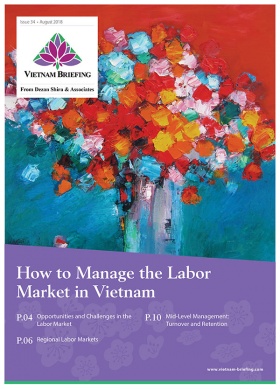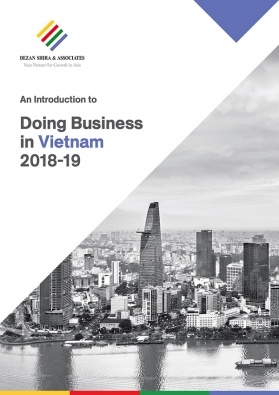Tax Compliance in Vietnam: Decision 2413 on Information Sharing
In Vietnam, customs and tax authorities are increasingly sharing information to ensure tax compliance of business entities with operations in the country. This practice is not new as several countries also have agreements in place spanning multi-jurisdictions to ensure corporations and even individuals are in tax compliance.
In Vietnam, customs and tax authorities’ information sharing is continuously being strengthened in part due to better enforcement of Decision No. 2413/QD-BTC (Decision 2413), which allows for further cooperation between the two entities as well as frequent tax inspections and audits.
Businesses such as manufacturing companies and export processing enterprises (EPEs) should ensure they are in compliance with local tax rules and seek professional help for issues that may be complicated.
Decision 2413
While Decision 2413 was implemented a while ago, enforcement has become more prominent, in part due to increased scrutiny on origin fraud and tax evasion. With several manufacturers shifting operations to escape US tariffs, there have been increasing cases of tax and origin fraud, forcing Vietnamese authorities to act.
We highlight key aspects of Decision 2413:
- Automatic data transmission: this includes connecting the data systems of both customs and the tax departments and transmitting them periodically;
- Data search: Online data search on each other’s databases so that information is transparent; and
- Direct communication between the two entities
In addition, customs and tax authorities will implement criteria for assessing businesses and will rate risk levels for businesses to gauge high-risk enterprises.
The two entities are also expected to cooperate in verifying value-added tax (VAT) refunds as well as violations in customs and tax laws.
For VAT refunds, tax authorities can offset the refundable amount by checking the tax that is payable, late payment and fines which are related to import and export of goods owed to customs authorities. This will be done via information sharing between both entities or the recovery of tax information from the customs website.
This also helps reduce costs for local authorities as they can use tax inspections by the local customs department particularly for companies that import specific input materials and export to business entities.
CIT and VAT
Businesses can use different ways to calculate corporate income tax (CIT). One way is to make use of incentives and not declare inputs on the basis for determining deductible expenses for CIT. However, tax authorities have the right to clarify the company’s CIT calculation. The tax audit done by customs officials for business entities that have been operational might differ to the tax audit done by tax authorities at the time to impose a tax, which would be a disadvantage for companies using CIT incentives.
For VAT, business entities typically declare VAT on imported input goods, which can be claimed back if the imported goods are used to produce the finished product subject to VAT. However, business entities cannot claim VAT if the exported goods are not exported in designated custom areas such as non-tariff zones.
Compliance is key
With the government increasingly stepping up scrutiny on entities evading tax payments, it is imperative that business entities review their documents and ensure compliance to avoid penalties and long administrative procedures.
Most recently, locally owned electronics manufacturer Asanzo was accused of several violations including origin fraud as well as tax evasion. Tax authorities fined Asanzo, accusing it of not issuing VAT invoices and purchasing input goods that were subject to higher excise taxes but declaring them as finished goods. The company is also accused of issuing higher invoices to evade tax. While investigations are still on, the case was an example of information sharing between customs and tax authorities to ensure compliance.
Investors should therefore carefully study all transactions and documents issued by the authorities and cross-check documents with official guidance. This will ensure that investors do not face sudden shocks and penalties. Investors may also use professional firms with knowledge of local laws to ensure compliance.
About Us
Vietnam Briefing is produced by Dezan Shira & Associates. The firm assists foreign investors throughout Asia from offices across the world, including in Hanoi and Ho Chi Minh City. Readers may write to vietnam@dezshira.com for more support on doing business in Vietnam.
- Previous Article Audit interno in Vietnam: cosa devono sapere gli investitori sul Decreto 5
- Next Article Vietnam’s Annual Tax Finalization – Challenges and Recommendations







